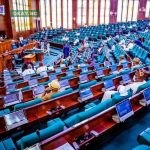The Institute of Chartered Accountants of Nigeria (ICAN) has identified a number of issues the apex bank should address in light of the Central Bank of Nigeria’s (CBN) implementation of the Naira redesign, including the impact on inflation and exchange rates, the cost of designing and printing the new currency notes, and the timing of the policy.
The 58th President of ICAN, Mallam Tijjani Isa, made the following remarks following the “Fitness Walk” in observance of International Accounting Day 2022:
“We acknowledge the CBN’s objectives in its recent initiative to redesign the Naira, discourage public hoarding of bank notes, address the worsening shortage of clean banknotes, and reduce the increasing risk and ease of counterfeiting.
“While ICAN would soon release its position on this policy initiative, suffice it to say that the CBN should take into account the opinions of the various stakeholders and make sure that important issues are satisfactorily addressed, such as the cost of designing and printing the new currency notes, the timing of the policy, the policy’s likely impact on inflation and exchange rates.
There is no denying that the Naira has been under unheard-of pressure versus the US dollar.
Since there is now a dearth of supplies through legal channels, the rate of exchange between dollars and naira in the black market often ranges between N780 and N820. This has significant effects ony the price of goods and services, as well as other productive endeavors.
“As we commemorate this special day, we acknowledge that economies all across the world are going through one of the most difficult periods in recent memory.
The issues are made more difficult by events like the conflict between Russia and Ukraine, climate change, rising consumer prices, declining GDP, trade wars, and political tensions, among others.
“As a country, we must find a permanent solution to the forex crisis if we are to develop at the desired lane.
“Several socio-economic disparities are having a negative impact on citizens at the national level. The third quarter of 2022 saw the highest inflation rate in seventeen years, at 207 percent.
This is occurring as citizens’ purchasing power is declining. Nigeria must adopt both short- and long-term solutions if it is to successfully combat inflation.









